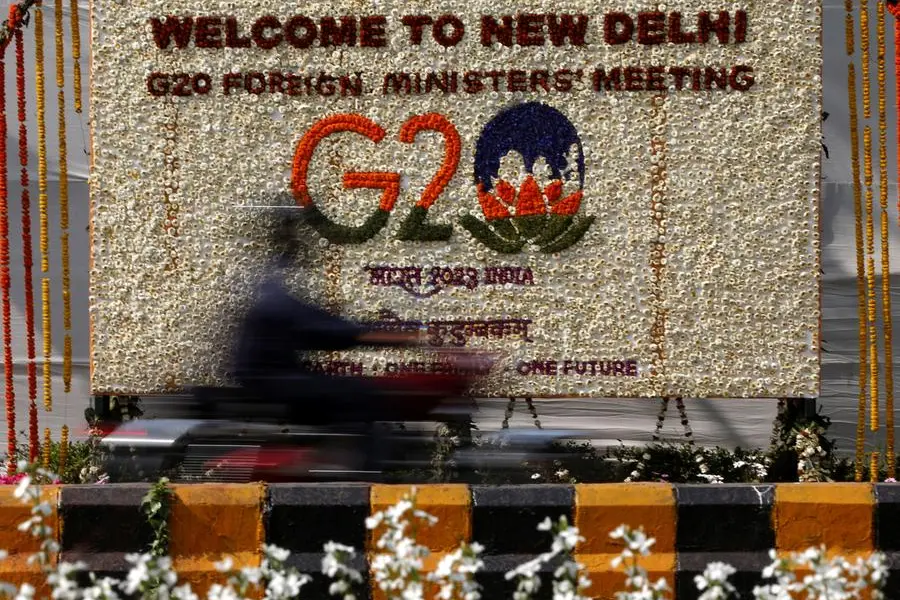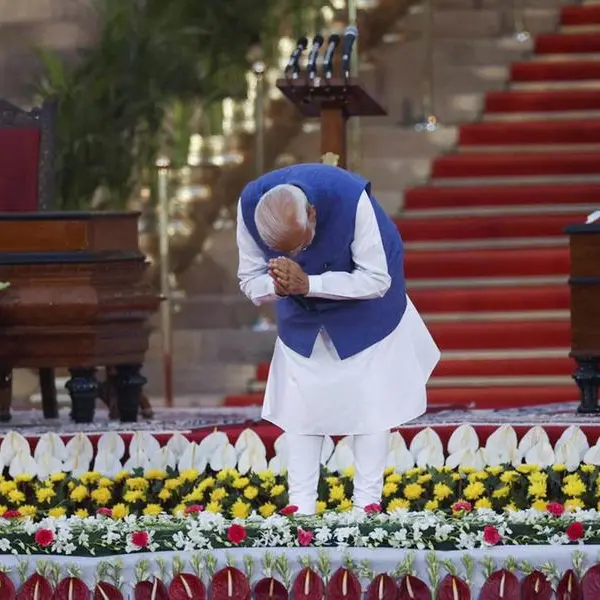PHOTO
The outcome of the two recent ministerial meetings of the G20 in India this month is open to diametrically opposite assessments. For those who believe that no item on the agenda of G20 is as important as ending the Russia-Ukraine war, without which no amount of consensus on economic issues will resolve the gigantic issues facing the world today, the entire exercise was in futility. On the other hand, as the Russian Foreign Minister Sergey Lavrov pointed out, G20 had not addressed political and security issues ever since it was established in 1999 and there was no reason why the G20 should now be judged on the basis of its performance in dealing with the war.
India, as the host, appeared to be inclined to consider the meeting of G20 foreign ministers as a resounding success with the outcome document reflecting the concern of developing countries and Global South and the G20 countries talking about other issues of global import including terrorism and reliable supply chains. G20 countries condemned terrorism in all its forms and manifestations as they noted the growing threat from the misuse of new and emerging technologies for terrorist purposes and pitched for a more inclusive and reinvigorated multilateralism and reform.
The Delhi G20 foreign ministers’ meeting was one of the largest such gatherings hosted by any G20 presidency. The outcome document at the end of it said supply chains of both food and agricultural products including fertilisers should be kept reliable, open and transparent. G20 foreign ministers had met at a time when the world faced multi-dimensional challenges ranging from insufficient progress towards Sustainable Development Goals (SDGs), climate change, pollution and biodiversity loss, to economic slowdown, debt distress, uneven pandemic recovery, growing poverty and inequality, food and energy insecurity and global supply chain disruptions, aggravated by geo-political tensions and conflicts.
“Meeting under India’s G20 Presidency, with the theme ‘Vasudhaiva Kutumbakam’ — ‘One Earth. One Family. One Future’ — the G20 foreign ministers deliberated upon current global challenges. They brought focus on strengthening multilateralism, food and energy security, ambitious climate and environmental action, deepening cooperation on sustainable development, counter-terrorism, counter-narcotics, global health, global talent pool, humanitarian assistance and disaster risk reduction, as well as gender equality and women’s empowerment,” the outcome document said. It said that the global order has undergone dramatic changes since World War II due to economic growth and prosperity, decolonisation, demographic dividends, technological achievements, emergence of new economic powers and deeper international cooperation.
“The United Nations must be responsive to the entire membership, faithful to its founding purposes and principles of its Charter and adapted to carrying out its mandate. In this context, we recall the Declaration on the Commemoration of the 75th anniversary of the United Nations (UNGA 75/1) which reaffirmed that our challenges are inter-connected and can only be addressed through reinvigorated multilateralism, reforms and international cooperation,” it said.
G20 foreign ministers said the need for revitalised multilateralism to adequately address contemporary global challenges of the 21st century, and to make global governance more representative, effective, transparent and accountable, has been voiced at multiple fora.
In composition and structure, G20 is better suited than the Security Council to deal with existential issues as members have no veto. A reformed Security Council will never materialise within the framework of the present Charter and all that the G20 can do is to arrogate to itself the right to demand the end of the war for the sake of humanity
As for the paralysis of the UN over the fight against the pandemic and stopping the war on account of the veto, the outcome papered over the issue by calling for a more inclusive and reinvigorated multilateralism and reform aimed at implementing the 2030 agenda. It made pious declarations about making the forthcoming multilateral conferences a success and working with the African partners.
The meeting recalled the Bali Leaders’ Declaration where leaders had reaffirmed that the rules-based, non-discriminatory, free, fair, open, inclusive, equitable, sustainable and transparent multilateral trading system, with the WTO at its core, is indispensable to advancing our shared objectives of inclusive growth, innovation, job creation and sustainable development in an open and interconnected world as well as to supporting the resilience and recovery of a global economy under strain due to Covid-19 and global supply chain disruption. The document was, however, silent about the way these can be accomplished even as a devastating war was raging, affecting the vitals of the entire world.
On climate change and biodiversity, the foreign ministers reaffirmed the steadfast commitments of their leaders, in pursuit of the objective of UNFCCC, to tackle climate change by strengthening the full and effective implementation of the Paris Agreement and its temperature goal, reflecting equity and the principle of common but differentiated responsibilities and respective capabilities in light of different national circumstances. It appeared as though a mere reiteration of these principles would be enough to give momentum to the international effort to reverse climate change.
The pandemic also received the attention of the ministers, but there was no formula to deal with the present and future dangers of a pandemic. The helplessness of humanity to work together in the face of a permanent member being suspected of creating the virus still haunts the world. It called for support for the process to negotiate and adopt a new pandemic instrument, an idea which was not yet accepted.
Indian External Affairs Minister S Jaishankar claimed that on the bulk of the issues which concern the Global South, the developing countries, there was considerable meeting of minds. He added that if we had a perfect meeting of minds of all issues and captured it fully then obviously it would have been a collective statement. He made light of the fact that “it is just on two paragraphs that were not able to get everybody on the same page.” Answering a query on the impact of Ukraine conflict, Jaishankar said it is impacting the Global South, adding that for a year, India was stressing the need to end the war.
But the fact that G20 could not collectively demand an end to the war was a matter of regret. The G20 failed to rise to the occasion to deal with the most pressing issue of the moment.
In composition and structure, G20 is better suited than the Security Council to deal with existential issues as members have no veto. A reformed Security Council will never materialise within the framework of the present Charter and all that the G20 can do is to arrogate to itself the right to demand the end of the war for the sake of humanity. The little gain that it made in Bali by producing two consensus paragraphs could have been the basis of a larger consensus later in the year, if it was not frittered away at the ministerial meeting. Hopefully, the G20 summit will act as a force for peace later in the year and demand an end to the war.
TP Sreenivasan is a former Indian diplomat.
Copyright © 2022 Khaleej Times. All Rights Reserved. Provided by SyndiGate Media Inc. (Syndigate.info).





















